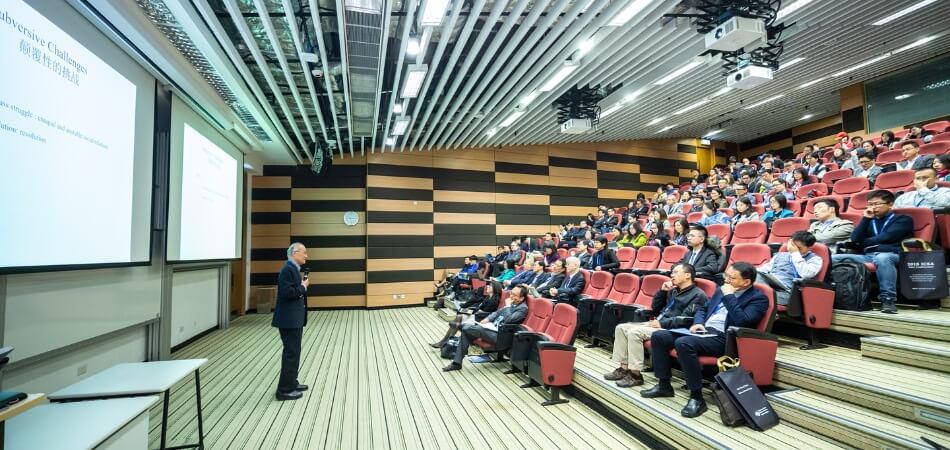Economics conferences hold a prominent place in the modern world, attracting widespread attention and participation. These events are arranged by various organizations, with their nature and goals determining the organizing entity. But, what is an economics conference?
An economics conference is a gathering of professionals, academics, researchers, policymakers, and experts in the field of economics to discuss and share research findings, exchange ideas, and engage in discussions related to various aspects of economics.
In this blog, we’ll talk about economics conferences and why they matter. Whether you’re into economics or just curious about how money and decisions affect the world, join us as we learn what these conferences are, why they’re important, and how they shape our economy.
History of Economics Conference
The history of economics conferences is a testament to the evolution of economic thought and the exchange of ideas. These conferences, dating back to the late 19th century, have played a pivotal role in shaping economic theory and policy.
The roots of modern economics conferences can be traced to the early American Economic Association (AEA) meetings, which began in 1886. These gatherings provided a platform for economists to discuss emerging economic theories and policy implications, fostering collaboration and innovation.
Over the decades, economics conferences have expanded in scope and reach, reflecting the increasing complexity of global economic systems. They have adapted to incorporate a diverse range of topics, from macroeconomics to behavioral economics, and now encompass participants from academia, government, and industry.
Today, these conferences continue to be instrumental in advancing economic understanding, influencing policies, and addressing contemporary economic challenges, standing as a testament to the enduring importance of economic discourse and collaboration.
What is an Economics Conference?
An economics conference serves as a dynamic forum where professionals, policymakers, and academics converge to exchange insights, research findings, and innovative ideas on a wide array of economic topics. These gatherings, hosted by various organizations, act as catalysts for advancing economic knowledge and facilitating informed decision-making.
Within the crowded halls of economics conferences, participants from diverse backgrounds share their research, engage in stimulating discussions, and participate in workshops, all aimed at enriching our understanding of economics. These events, with their global participation, foster international cooperation and offer a comprehensive perspective on the economic challenges faced worldwide.
For instance, the recent Business Management Conference in Canada seamlessly integrated into this dynamic environment, providing a platform for scholars and practitioners to exchange insights and explore innovative solutions to contemporary economic issues.
Moreover, the significance of economics conferences transcends academia. They wield substantial influence on economic policies, industry trends, and the overall course of economies. As crucibles for economic thought and innovation, these conferences contribute significantly to the continuous enhancement of economic systems, shaping our ever-evolving economic landscape.
Types Of Economic Conferences People Can Attend
Economics conferences provide chances for people interested in the field to learn and connect. They’re lively events where you can share knowledge and get insights into the ever-changing world of money and markets. In this article, we’ll explore different kinds of economics conferences you can go to.
Academic Conferences
These scholarly gatherings are primarily focused on research and intellectual exchange. Academics and researchers from around the world convene to present their latest economic findings, fostering a robust academic community.
Policy Conferences
Policy-oriented conferences bring together influential experts, policymakers, and thought leaders. These forums are instrumental in shaping economic policies, both at the national and international levels.
Industry-Specific Conferences
Tailored to particular sectors such as finance, healthcare, or technology, these conferences provide industry professionals with crucial insights, trends, and strategies for success. For instance, a technology-focused conference may explore the latest innovations and market developments in the tech industry.
Global Economic Forums
International in scope, these forums, such as the World Economic Forum, assemble global leaders to discuss pressing economic issues, encourage cross-border collaboration, and address challenges with a worldwide impact.
Workshops and Seminars
Smaller-scale events often emphasize practical learning and skill development. Participants engage in in-depth discussions on specialized economic topics and gain hands-on experience. Workshops can cover various subjects, from financial planning to data analysis techniques.
Business and Investment Summits
Designed for entrepreneurs, investors, and business leaders, these summits offer valuable market analysis, investment strategies, and economic opportunities for decision-makers in the corporate world.
By exploring these diverse types of economic conferences, individuals can choose the ones that align best with their interests, career goals, and the specific aspects of economics that intrigue them the most.
Key Components of Economics Conferences
Economics conferences are vibrant gatherings filled with essential elements that define their significance and impact. Let’s take a closer look at the key components that make these conferences such enriching experiences:
Research Presentations
At the heart of international economics conferences are research presentations. Scholars and experts share their latest findings, expanding our understanding of economic principles and trends. These presentations often cover a wide range of topics, from macroeconomics to behavioral economics, offering a comprehensive view of the field.
Networking Opportunities
These conferences serve as prime networking hubs, where professionals, academics, and policymakers come together. Attendees have the chance to interact with peers, experts, and potential collaborators, leading to collaborations, job opportunities, and the exchange of innovative ideas.
Keynote Speakers
Renowned figures in the field deliver keynote addresses, offering valuable insights and perspectives on pressing economic matters. These speakers bring a wealth of experience and often address current economic challenges, providing attendees with valuable takeaways.
Panel Discussions
Expert panels convene to explore specific economic topics in-depth. These discussions provide diverse viewpoints and stimulate insightful debates. Panels may cover issues like economic inequality, environmental sustainability, or the impact of technology on the economy, allowing attendees to gain a deeper understanding of complex economic issues.
Workshops and Seminars
Smaller, interactive sessions offer attendees practical, hands-on experiences, fostering skill development and making complex economic concepts more accessible. Workshops and seminars may include data analysis training, financial modeling, or policy simulation exercises, enhancing participants’ expertise.
Policy Discussions
Delving into real-world challenges, these discussions involve policymakers who share their insights and engage in debates, influencing future economic decisions. Attendees gain a greater appreciation for the role of policy in shaping economic outcomes, and these discussions often lead to actionable policy recommendations.
These components collectively create an environment where ideas flourish, knowledge deepens, and valuable connections form, making economics conferences essential for professionals and enthusiasts alike.
Useful Tips For Economic Conference Preparation
Attending an economic conference can be a rewarding experience, but it’s essential to prepare effectively to make the most of it. Here are some useful tips to help you navigate these events successfully:
- Plan Ahead: Review the conference agenda in advance to prioritize sessions, workshops, and speakers that align with your interests and goals.
- Network Strategically: Identify key attendees you want to connect with, prepare your elevator pitch, and bring business cards to facilitate meaningful networking.
- Stay Informed: Familiarize yourself with current economic trends, policy issues, and recent research to engage in informed discussions.
- Pack Essentials: Don’t forget your conference materials, chargers, and comfortable attire for long days of learning and networking.
- Engage Actively: Participate in discussions, ask questions, and share your insights during sessions to maximize your learning experience.
- Take Notes: Keep detailed notes to capture valuable information, ideas, and action items for post-conference follow-up.
- Utilize Technology: Download relevant apps, follow conference hashtags on social media, and leverage digital tools for efficient communication and information sharing.
- Be Open-Minded: Be receptive to diverse perspectives and new ideas, as conferences often provide fresh insights that can reshape your thinking.
- Follow-up: After the conference, reach out to new contacts promptly, share resources, and nurture relationships to make lasting connections.
- Reflect and Apply: Take time to reflect on what you’ve learned and how it can be applied to your work or research in the field of economics.
Bottom Line
Economics conferences stand as vital hubs of knowledge exchange, collaboration, and innovation in our ever-evolving economic landscape. These events, which have a rich history dating back to the late 19th century, continue to shape economic theory, policy, and practice.
“What Is an Economics Conference?” you may ask. Well, as we discussed earlier it is a dynamic gathering of professionals, policymakers, academics, researchers, and experts who converge to discuss, share, and ideate on diverse aspects of economics. These conferences play a pivotal role in advancing our understanding of economics, influencing policies, and fostering international cooperation.
Whether you are an economics enthusiast, a curious novice, or someone attracted by the complex workings of economies, these conferences offer a wealth of opportunities for learning, networking, and personal growth. As we have explored the various facets of economics conferences, it is evident that they are indispensable in the pursuit of economic knowledge and progress.








